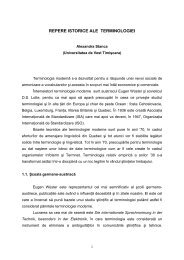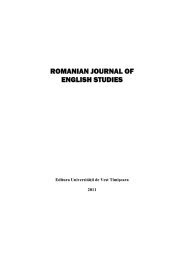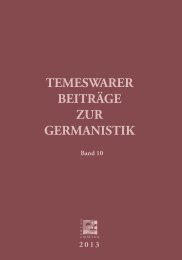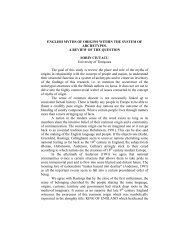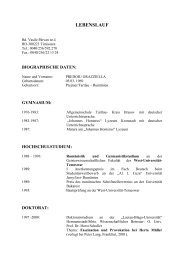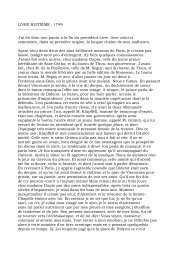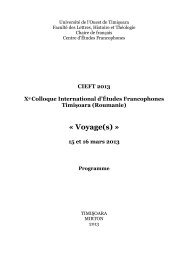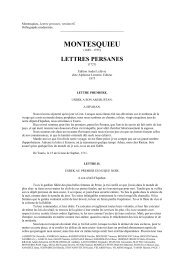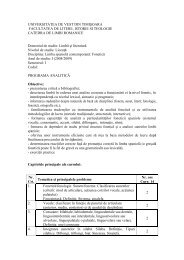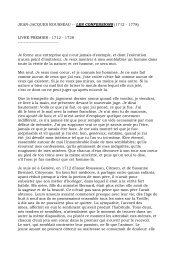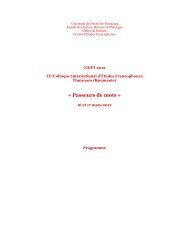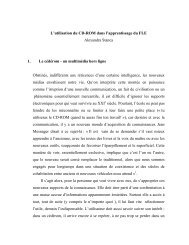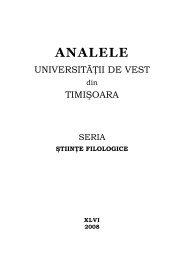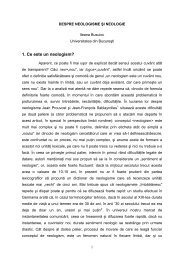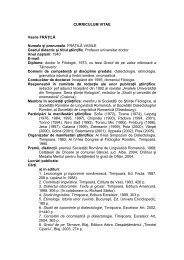TRANSLATION AND MEANING: A CULTURAL- COGNITIVE ...
TRANSLATION AND MEANING: A CULTURAL- COGNITIVE ...
TRANSLATION AND MEANING: A CULTURAL- COGNITIVE ...
You also want an ePaper? Increase the reach of your titles
YUMPU automatically turns print PDFs into web optimized ePapers that Google loves.
various types of additional information about the execution or the operation<br />
of the law, or referential qualifications (cf. example 2 above), when they<br />
specify the essential inter- or intra-textual nature of the legal provision. The<br />
elements constituting the third type of qualifications mentioned by Bhatia,<br />
i.e. the preparatory qualifications (cf. example 3 above), which describe the<br />
case to which the law applies, is more rarely thematized in the EU<br />
documents, which prefer to formulate these initial case descriptions under<br />
the form of finite conditional or temporal clauses. I can conclude, therefore,<br />
that the producers of the texts resort to this solution whenever they consider<br />
it important to provide a point of orientation in understanding the terms of<br />
the law in question, before the legislative provision proper is actually<br />
formulated.<br />
All the examples offered so far clearly indicate that the Romanian<br />
variants of the EU documents tend to preserve the themes present in the<br />
original texts, thus contributing to the maintenance of a coherent point of<br />
view at the level of the translations in question. However, the comparative<br />
analysis of the English and the Romanian texts making up my corpus led to<br />
the identification of certain differences between the thematic structure of the<br />
translated documents and that of their originals. In most such situations, the<br />
translator’s modification of the original theme-rheme pattern does not seem<br />
to have any objective justification, its result often being changes in focus or<br />
contrast at the level of the document in question, as it is the case of the two<br />
examples offered below:<br />
(1) ST: “Under no circumstances may a foreign judgment be reviewed as to its<br />
substance.”<br />
TT: “Hotărârea străină nu poate face în nici o situaţie obiectul unei revizuiri de<br />
fond.”<br />
(32001R0044)<br />
(2) ST: “Member States shall, following consultation with social partners in<br />
accordance with national law and practice, lay down practical guidelines for the<br />
determination of sporadic and low-intensity exposure …”<br />
TT: “După consultarea partenerilor sociali, în conformitate cu legile şi<br />
practicile naţionale, statele membre enunţă directive practice pentru definirea<br />
expunerilor sporadice şi a expunerilor de mică intensitate …”<br />
(32003L0018)



